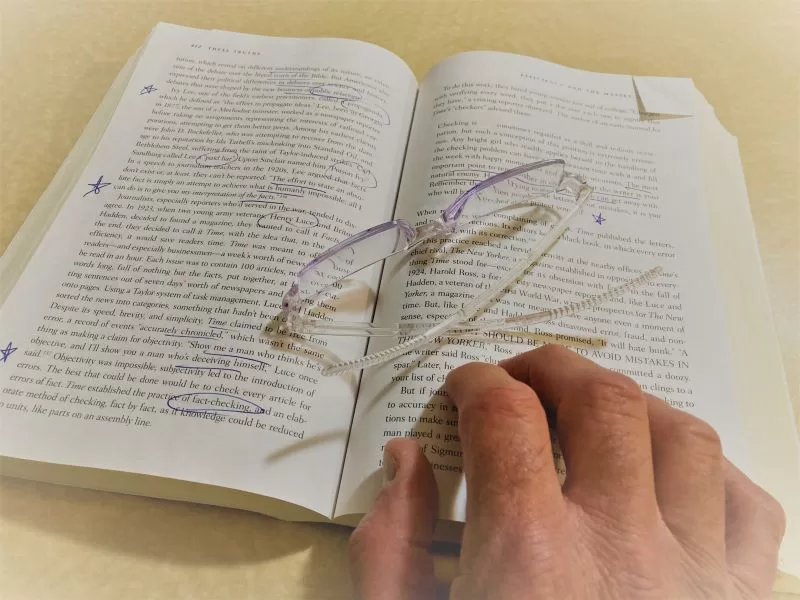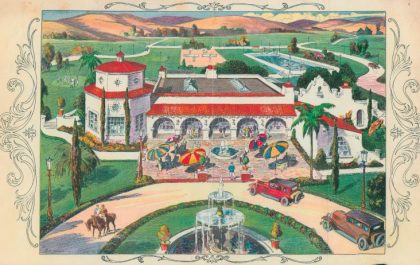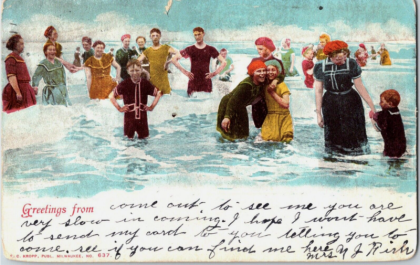
In the introduction to her marvelous single volume political history of the United States—These Truths: A History of the United States (2018)—historian Jill Lepore shares a documented moment which illustrates the very nature of the founding of our country.
In a draft of the Declaration of Independence, Thomas Jefferson had written that “we hold these truths to be ‘sacred and undeniable.’” The older—and presumably a bit wiser—Benjamin Franklin “scratched out” the “sacred and undeniable” and suggested another way to describe the source of “these truths”—political equality, natural rights, and the sovereignty of the people—with more enlightened language. He was inspired, as were they all, by the principles that formed the justification for independence in the first place. Our nation and its ideals are the product of the Enlightenment, an age following the Scientific Revolution in which reason was deployed to further our understanding of the world; and determining from this how best to organize society.
As Jill Lepore tells it, “these truths” were not “God-given and divine, the stuff of religion…” as “sacred and undeniable” suggest. Rather, as every student of history is well aware, the Second Continental Congress declared independence from Great Britain by proclaiming loudly and for all the world to hear, “we hold these truths to be self-evident” because, as Lepore adds, “Truths that are self-evident [emphasis added] are laws of nature, empirical and observable, the stuff of science.”
In an age when religious answers in the Western world ceded some ground to science, the study of history took on new meaning as well; in fact, re-imagining history as a tool to understand ourselves in the present stands as a hallmark of the Enlightenment.
It did not happen overnight yet, when the founders of the United States declared independence and then formed a new government; they were following and implementing new ideas that had developed – in the West, anyway – for well over a century. “Only by fits and starts,” Lepore writes, “did history become not merely a form of memory but also a form of investigation, to be disputed, like philosophy, its premises questioned, its evidence examined, its arguments countered.”
While there were certainly a few pious men among them, there is absolutely no doubt whatsoever—and the empirical evidence on this point is overwhelming—all of the founders of our country were students of the Enlightenment. Their arguments and capitulations and eventually their collaboratively derived decisions were informed by an enlightened attitude towards their history.
As Lepore explains, looking at history with a more discerning eye “didn’t require abdicating faith in the truths of revealed religion, and it relieved no one of the obligation to judge right from wrong. But it did require subjecting the past to skepticism, to look to beginnings not to justify ends, but to question them – with evidence.”
And this is exactly what the Harvard Professor of American History has done; by reporting the political development of our country with a pragmatic commitment to the evidence of the historical record. This may seem like a common-sense approach to understanding our past. However, there are quite a few episodes of American history that were shaped by those who put forth a version of history with the intent of achieving personal and institutional political goals.
We are now living in such a time.
The issues that so harshly divide Americans today are often characterized as the “culture wars” as they strike at the very heart of the basic functioning of society; not the least of which is the manner in which we educate our children together, most notably our history instruction. However, at the core of our largely socio-cultural problems is a fractured and failing political system. And, much of that failure can be attributed to those who have distorted history to achieve their political goals.
Perhaps the most egregious and comprehensive propaganda campaign of our own time is the conservative effort to blindly venerate the founders of the country and to examine the Constitution with an eye only to what they wrote and what they intended (as if this were even possible); and without regard to the realities of the modern world.
First, what they wrote into our founding documents is subject to interpretation. Second, there was no “intent of the founding fathers.” The Constitution is, as its central feature, a series of compromises made by men with widely divergent views. Further, these obviously remarkable men were well aware that the country they founded would have to adapt as it grew and developed.
As Lepore informs, Thomas Jefferson, one of the youngest founders, “warned against worshiping the men of his generation.” And in 1816, at the age of 73, Jefferson himself wrote that if the long-dead founders “were to rise from the dead” they would tell us that the “laws and institutions must go hand in hand with the progress of the human mind.”
Throughout These Truths Lepore cites clear evidence that certain politically-inspired interpretations of our own time neglect, overlook, and obfuscate the historical record in deference to fleeting political interests in the short term and, most threateningly, plant a blurry flag in defense of distorted views of a history that never was.
In my view, she has no agenda save that of laying out an honest assessment of how it is we came to believe the things we believe. She reminds us too, through repeated examples of our shared political history, that there have always been a few among us with immense influence whose power depends a great deal upon shaping how we think. If you worry even a bit about these things, I suggest tempering their historical propaganda with a thoroughly enjoyable bit of Jill Lepore scholarship.











